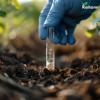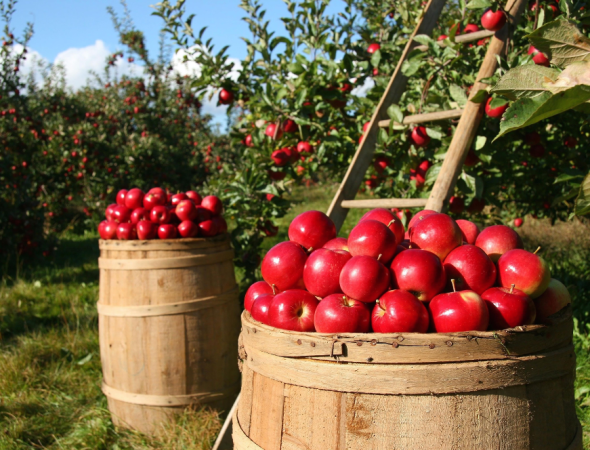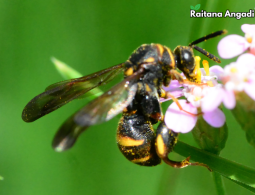Embracing Organic Farming: A Path to Sustainable Agriculture
Organic farming is gaining traction worldwide as more people recognize its benefits for health, the environment, and sustainable agriculture. This holistic approach focuses on using natural inputs, maintaining soil health, and promoting biodiversity. Here’s a comprehensive guide on how to practice organic farming effectively.
What is Organic Farming?
Organic farming is an agricultural method that avoids the use of synthetic chemicals and genetically modified organisms (GMOs). Instead, it relies on natural processes and materials to maintain soil fertility and control pests. The goal is to create a self-sustaining and environmentally friendly farming system.
Benefits of Organic Farming
- Healthier Produce: Organic farming avoids synthetic pesticides and fertilizers, leading to healthier and more nutritious produce.
- Environmental Protection: Reduces pollution and conserves water, soil, and energy.
- Biodiversity: Promotes a diverse ecosystem by encouraging a variety of crops and natural predators.
- Sustainability: Enhances soil fertility and structure, ensuring long-term agricultural productivity.
Organic Fertilizers
Organic fertilizers are key to maintaining soil health and fertility. They release nutrients slowly, improving soil structure and moisture retention. Here are some commonly used organic fertilizers:
- Compost: Made from decomposed organic matter, compost is rich in nutrients and beneficial microorganisms. It improves soil structure, aeration, and water retention.
- Manure: Animal manure, such as cow or chicken manure, is an excellent source of nitrogen, phosphorus, and potassium. It must be composted before use to kill pathogens and weed seeds.
- Green Manure: Cover crops like clover, alfalfa, and legumes are grown and then plowed back into the soil to add organic matter and nutrients.
- Bone Meal: A slow-release fertilizer made from ground animal bones, bone meal is rich in phosphorus and calcium, promoting root development and flowering.
Organic Pesticides
Controlling pests without synthetic chemicals is a cornerstone of organic farming. Organic pesticides are derived from natural sources and are less harmful to beneficial insects and the environment. Some effective organic pesticides include:
- Neem Oil: Extracted from the seeds of the neem tree, neem oil disrupts the life cycle of insects, acting as a repellent, growth inhibitor, and antifeedant. It’s effective against a wide range of pests, including aphids, mites, and whiteflies.
- Insecticidal Soap: Made from potassium salts of fatty acids, insecticidal soap kills soft-bodied insects like aphids and spider mites by disrupting their cell membranes.
- Diatomaceous Earth: This natural powder is made from fossilized algae and works by damaging the exoskeletons of insects, leading to dehydration and death. It’s effective against ants, slugs, and beetles.
- Garlic and Chili Spray: A homemade mixture of garlic, chili peppers, and water can repel a variety of pests. It’s safe for plants and non-toxic to humans and pets.
Avoiding Synthetic Chemicals
One of the fundamental principles of organic farming is to avoid synthetic chemicals. These chemicals can harm beneficial insects, contaminate water supplies, and degrade soil health. Instead, organic farmers focus on building a balanced ecosystem that naturally manages pests and diseases.
Integrated Pest Management (IPM)
Integrated Pest Management (IPM) is a holistic approach that combines different strategies to manage pests effectively and sustainably. IPM includes:
- Crop Rotation: Alternating crops helps prevent the build-up of pests and diseases specific to a particular plant.
- Companion Planting: Growing certain plants together can repel pests or attract beneficial insects. For example, marigolds deter nematodes, while basil repels mosquitoes and flies.
- Biological Control: Introducing natural predators, such as ladybugs or parasitic wasps, helps control pest populations.
- Mechanical Control: Physical barriers, such as row covers and traps, can prevent pests from reaching the crops.
Conclusion
Organic farming is more than just a method of agriculture; it’s a commitment to a healthier, more sustainable world. By using organic fertilizers and pesticides, avoiding synthetic chemicals, and embracing practices like crop rotation and IPM, farmers can cultivate thriving, productive farms that benefit both people and the planet. Whether you’re a seasoned farmer or a gardening enthusiast, adopting organic practices can make a significant positive impact.
Embrace the journey of organic farming and contribute to a sustainable future for generations to come.














Add comment